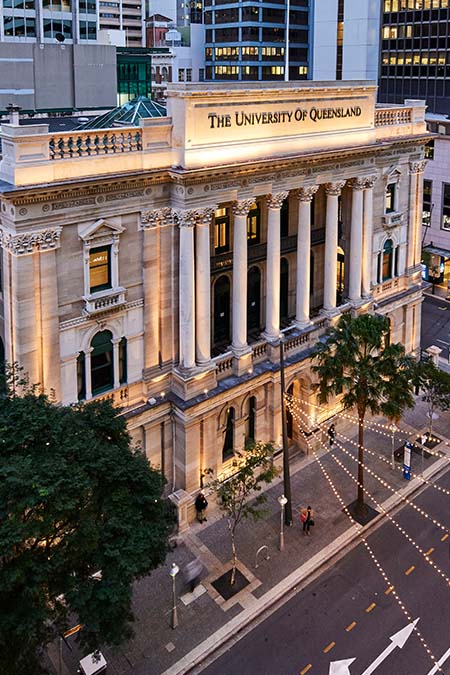How to choose a top Business School for your MBA:
6 things to consider
So, you’ve decided to start your Master of Business Administration (MBA) journey. This is a big step, and one that will reward you immensely.
However, not all business schools are created equal.
While an MBA is a highly regarded qualification, choosing the right business school to study at can make or break your learning experience – and even influence your career outcomes.
Why it’s important to choose the right MBA school
Like people, every university and business school has their own personality, priorities and strengths. With so many excellent business schools, it’s important to choose a school that reflects your learning preferences and will help you achieve your goals.
This may seem like a daunting task, but we are here to make the decision process a little easier for you.
6 things to look for in an MBA school
 1. The when, where and how
1. The when, where and how
Different MBA schools offer different ways of learning, such as online or in-person, and full-time or part-time formats. Deciding when, where and how you want to study will help you narrow down the location of your school.
The UQ MBA allows for a flexible, hybrid approach. With online or in-person study options at our convenient city location in the heart of the Brisbane CBD, this approach ensures the utmost flexibility with the opportunity to make connections with staff, peers and alumni face-to-face. Depending on your other commitments, there is also a variety of formats to choose from including:
- an intensive 1-year MBA plan
- a streamlined 2-year plan featuring a range of morning, evening and weekend classes
- a customised format with the ability to study at your own pace for up to 7 years.
2. The stats
While university rankings and MBA accreditations can be subjective, many employers view the credentials of a university and MBA program as important. Rankings and accreditations to look at during your Business school research should consider how the university ranks overall, the quality of the MBA program, and the student learning experience.
The QS World University ranking is just one reputable source of information to compare reputations of different universities or learn more about a particular study location. If you’re looking to hear about student quality, The Economist provides a ranking determined by surveying thousands of graduating students from each business school.
The Economist has ranked UQ’s MBA as #1 in the world for student quality for 5 years in a row.
3. The values
A university is more than just a place to get a qualification,
so it’s important to consider your values when choosing where
you want to study. Consider what is important to you,
what will motivate you, and how your purpose matches
with what the MBA school offers.
The UQ Business School is a proud supporter and advanced
signatory of the United Nations Principles for Responsible Management Education (UN PRME). We are committed to
delivering sustainability outcomes for students, staff and the
wider society by achieving 8 established goals by 2030 and
15 actions for impact by 2023.
As an example, UQ Business School is proud to be the first
school in Australia to deliver a Carbon Literacy Program that
teaches the impact of everyday activities on climate and the
steps that can be taken to reduce emissions as an individual
and as part of a community group.
4. The teachers
There are different types of educational institutions in Australia including public universities and private colleges. Private colleges are typically smaller and provide a more secluded learning experience between students and teachers, while research universities are typically larger and focus on conducting and publishing research in a variety of fields.
By attending a ‘research-focused’ university, like The University of Queensland, you will have access to industry leaders and experts who are incredibly passionate and active within their field of work. At UQ Business School, our academics collaborate across multi-disciplined content in the form of our 5 research hubs. This allows for bold, innovative ideas to be delivered from the researcher straight to the classroom to help prepare future business leaders to tackle whatever the future holds.
 5. The support
5. The support
Whether you think you’ll need it or not, it’s always helpful to research what support options you will have as both a student and alumnus of an MBA school. Types of support to consider include the variety of information, services, programs, events and resources you’ll have access to during this research stage, during your studies, and the benefits you’ll receive as an alumnus.
The UQ Business School provides this support to MBA students throughout their degree and beyond via:
- career support for life provided by a specialised team of Career and Professional Development experts
- support for graduates via the Business, Economics and Law Advancement team
- networking opportunities with staff, industry connections, MBA alumni
and peers as part of signature thought leadership events, targeted career
programs, global immersion tours, short-term global experiences and
student capstone projects - access to alumni benefits including discounted professional development
courses for lifelong learning - custom support and advice from enquiry to graduation and beyond via our
friendly administration teams, private LinkedIn group and personal
communication methods.
6. The investment
The final important factor to consider when choosing where to study your MBA is the cost. According to the 2018 MBA News MBA Motivations and Aspirations Survey, the cost of an MBA can be a concern for many prospective students.
It’s true that studying an MBA, like any higher education degree, is a significant financial investment. However, some MBA schools will provide you with options to gradually pay off or help finance your degree. These options include:
- scholarships
- payment plans
- getting your employer to contribute
- or using the government’s FEE-HELP program.
Make sure you discuss what fee support options are available to you with your school’s administration team.
Regardless of the cost, the return on your investment should prove worthwhile. In fact, the stats speak for themselves. At UQ Business School, 77% of our students end up changing careers after graduating. On top of this, our MBA graduates have an average salary of $170,000 compared to the industry average of $101,000.
While completing an MBA requires a significant time, emotional and financial investment, it’s an investment worth making.
 Where to from here
Where to from here
While there’s a lot to consider, these tips will help you choose a top MBA school that suits your needs, fuels your passion, and makes your study experience enjoyable.
If you would like a little more help deciding on the best MBA school for you, seek out some firsthand information through open days, speaking to current or past students, or talking to the university’s MBA team. These opportunities can help you get an idea of the culture and learning environment first-hand.
